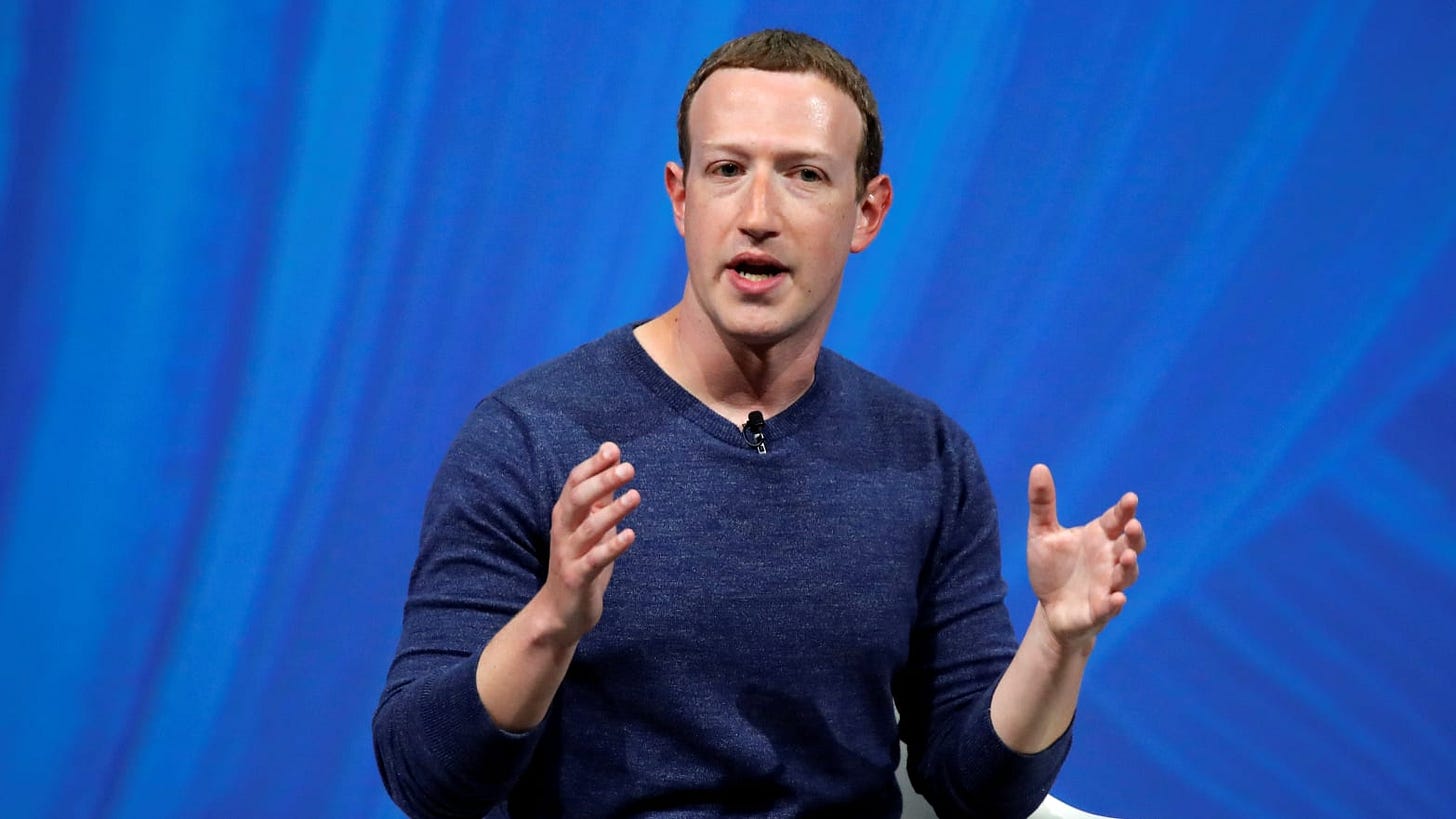Reality Labs is the Key to Preserving Meta's Ad Business
How Zuckerberg hate fuels consistently incorrect opinions on Meta
Recent media coverage on Meta is completely incorrect from a strategy and macro perspective. Editorial perspectives on Meta Reality Labs and Threads imply the exact opposite of reality. If you were to go media coverage the past two weeks, you would believe that Reality Labs is dragging the company down and Threads is the future of the company. The opposite is true.
The conclusions on Reality Labs and Threads are incorrect for following reasons:
Bias against Mark Zuckerberg and Meta
Ignorance of the connection between Reality Labs and Advertising long-term
Let’s break down these two points one by one.
Media bias against Mark Zuckerberg and Meta
Meta is historically always in a better condition than what the media portrays. This is because a large majority of journalists dislike Zuckerberg personally. Recent examples of this are the last two Meta ad boycotts. These two boycotts all had no material impact on Meta but large amounts of speculation of it impacting Meta. Meta’s stock price grew both times afterwards because negative stories on Meta are overstated. A high volume of negative articles from the media is a consistently good buying signal for Meta’s stock.
The exception to the media being overly negative is Threads. Coverage on Threads is the one of the rare examples where mainstream coverage on Meta is better than what it actually is. This is because Elon Musk is more disliked than Mark Zuckerberg. The same journalists writing about Threads superseding twitter are still more active on twitter. Positivity on Threads is a function of dislike of Elon Musk and disconnected from reality.
Ignorance on Reality Labs and Advertising long-term
Coverage on Reality Labs portrays investment into R&D as a speculative failure. This is an erroneous perspective. Reality Labs is the key to the survival of Meta’s advertising marketplace. I’ll explain why.
The story begins in 2020. Facebook has record sales for the Oculus Quest as a result of the pandemic. They also launch Rayban Stories in 2020. Facebook begins accelerating investments into mixed reality and spatial computing.
Apps must request the user consent if they intend to track user activities across apps and websites.[16]
During the iOS 14 announcement, Apple pledged to improve users' privacy by limiting apps' access to Apple's Identifier for Advertisers (also known as IDFA or Advertising Identifier). This change was postponed "until early 2021 in iOS/iPadOS 14.5" to let developers migrate to more privacy-friendly alternatives.[17] Facebook has notably opposed such privacy measures, arguing that small businesses need to access user data for targeted advertising.[18] Statistics from Verizon subsidiary Flurry Analytics show after iOS 14.5 was released, only 11-12% of all consumers and 4% of American consumers have allowed Facebook to track them, in what has been described as a "nightmare" for Facebook.[19]
-Wikipedia
Imagine for a moment that Apple’s emphasis on privacy is not out of goodwill but an attempt to crush competitors in the future battleground of personal computing. Apple’s Vision Pro indicates a long-term belief that Mixed Reality HMD will be the device that eliminates all other screens.
iOS 14 can be seen as the beginning of Apple’s offensive against Facebook (now Meta). By attacking the effectiveness of mobile advertising, Apple reduces Meta’s ability to invest into mixed reality hardware and software. The unintended consequence of this is retargeting ads drastically declining as well as a broader crash in the digital advertising effectiveness. Google and Snap joined in on this privacy attack on Meta to their own detriment.
This is the major story line that mainstream media outlets are missing. Meta must create a competitive XR solution to ensure both the:
Delivery of ads
Collection of meta data to ensure that ads perform well on the Meta ad ecosystem
Otherwise, they are at the whim of an Apple App Store ecosystem that pushes for killing the freemium app model. The freemium app model was the core to the mobile app ecosystem. Apple seeks to to wipe this out on mobile as well as on future mixed reality HMDs and glasses.
Meta isn’t losing money with Reality Labs. They are investing to secure their future. These investments are necessary if it seeks to keep its core revenue generating working on the next generation of devices.
The general public often accuses public companies of being short sighted about the future. Yet it is pushing for Meta to be short sighted. It’s difficult to know if it’s because of ignorance or an example of pushing Meta in the wrong direction. Mark Zuckerberg would be wise to ignore the tech media’s editorial pieces.



